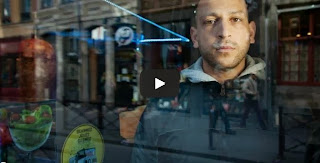Equality Betrayed: Speaking Out Against Ethnic Profiling by French Police
by Marc Krupanski and Zsolt Bobis Open Society Justice Initiative
Adji Ahoudian is a French citizen, and an elected member in the office of the mayor of the 19th arrondissement in Paris. He proudly remembers the day he received his new official I.D., with the Republican motto “Liberty, Equality, Fraternity”.
But then, after attending a council meeting one day, he was stopped by the police for an identity check, for no reason. Except maybe that he was black. “It is then that you realize that you belong to the Republic, you live in the Republic, but you aren’t actually a full citizen,” he says. “Instead you are a second-class citizen. You are continually reminded that due to your face, due to your skin color, due to your appearance that you are not really from here—even when you are an elected official of the Republic.”
Adji’s story is told in a new report by the Open Society Justice Initiative that looks into the human reality of the grim fact that the police in France routinely and disproportionately target young men of African or Arab origin for identity checks. They call it contrôle au faciès in France, stop and frisk in New York, or stop and search in London but it amounts to the same thing: discrimination.
“Equality Betrayed: the Impact of Ethnic Profiling in France” features 13 young French people and two policemen talking about what it’s like to be on the receiving end. “Those who do not live this, this harassment, don’t understand what we are talking about,” says Hicham Kochman. “It’s a daily, ongoing form of humiliation.”
Police checks have aggravated police-community relations in France’s inner cities, setting the scene for outbreaks of disorder and violence. Says Lyes Kaouah: “When we walk in the city and we see the police, we feel unsafe. There are other people for whom the police presence provides a sense of security. There are really two Frances.”
During the 2012 presidential election campaign, François Hollande won support from many voters by pledging to end discriminatory policing. His new Prime Minister, Jean-Marc Ayrault, then pledged to introduce stop forms, which police would issue to people they stop, creating data on who is being stopped and why, data that doesn’t currently exist. But despite evidence that stop forms can play an important role in creating fair and effective policing, the government has backed away from the proposal, and offered only weak measures instead.
But pressure for change continues. On July 3, 2013, there was a hearing before the Tribunal de Grande Instance in a case brought by thirteen individuals complaining over being stopped due to their origin or skin colour. This is the first-ever French case brought on ethnic profiling to be heard by a judge; it is expected that a judgment will be delivered on October 2.
The need for action is underlined by the testimonies presented in our report, and the video above. Yannick Danio, a police major and police union official warns: “A police force that has the population against it cannot work, it is not possible. Constant identity checks are counterproductive…it has no rhyme or reason. We need to reverse course and allow only justified identity checks and not identity checks by the shovelful.”
Adil Kochman, a film-maker and artist living in the northern city of Lille, puts it this way: “We are a generation that grew up in war. Not a war involving bombs, but one with the police. It’s not normal…it has to stop or it will lead to conflict.”
Mourad Agoun, from Vaulx-en Velin outside Lyons, told us he hopes for better. He now has a son of his own, and he doesn’t want him to grow up feeling like a second-class citizen: “I want my son to travel around the world; I don’t want him to be locked up inside himself because of identity checks that make him think that outside of his small neighborhood there is no life for him.”
Zsolt Bobis is a program coordinator with the Open Society Justice Initiative, working on equality and citizenship issues and policing.




Comments
Post a Comment